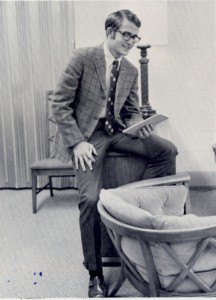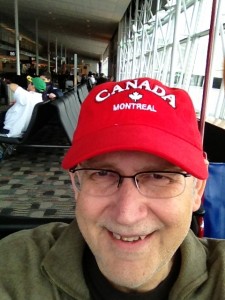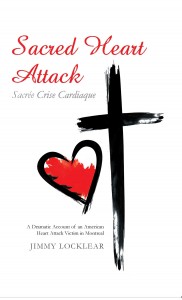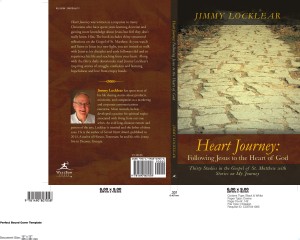I’ll be attending next week’s (June 17-20, 2014) PCA General Assembly in Houston, TX. It is the denomination’s 42nd such gathering and this year’s theme is “Proclaim Christ, Disciple the Nations” and was chosen by the host presbytery’s in Houston. The Houston Metro and Korean Southern are the local hosts and they report that Houston officially has 70 countries represented in the metro area of southeast Texas. There are 32 PCA churches in this area and most are Korean.
My first PCA GA was in 1976 in Greenville, SC and was the denomination’s fourth such gathering. Lots of things have changed since then. I was a young campus staff member with InterVarsity Christian Fellowship working at Georgia Tech, LaGrange College and a few other colleges and was a member of a PCA Church. I had joined First Presbyterian Church, Chattanooga, while in college at UTC in 1972. So, I was in that church when we voted to leave the PCUS and help start this new denomination. While working with IVCF in Florida, Georgia and Wisconsin, I was an associate member of two PCA churches and one PCUSA church, respectively.
So, I attended that 4th GA representing InterVarsity with a table to promote our college student and faculty ministry and the huge Urbana Student Missionary Convention we sponsored in December that year. I have three rather vivid memories from that event.
One, I arrived early to set up my table with IVP books, Urbana brochures and flyers on our ministry to college students in the Southeast. Some friends at InterVarsity Press had learned of my participation at the event and offered me some plastic InterVarsity Bags to give out at the event. So, I had a car trunk full of these shiny white bags with logos all over it and a nice handle. The idea of bags at conventions and trade shows was a very new innovation and not as common as it is now. I went to the registration table and observed all of the material that folks were being asked to carry. I talked to the woman managing the process and said that I had all these bags that we’d be happy to provide for all of the commissioners. She was thrilled! And so was IVCF Regional Director Pete Hammond when he showed up at the event the next day wondering what I had done to get everyone to be a walking advertisement for our ministry. That experience became a career changing experience for me later on and I moved into public relations and media work.
My second memorable experience happened a couple of nights later. I was driving to my motel (Day’s Inn) after a long day of talking to pastors about college ministry and went through the parking lot of a large shopping center where there happened to be a movie theater. I saw a man in a suit, carrying a raincoat and what looked like two or three newspapers walking across the lot headed toward the theater. I thought he looked familiar, so, I circled back and was pretty sure it was Rev. Ben Haden my pastor from Chattanooga who had a growing presence on radio and TV with his sermons on the “Changed Lives” program. I thought this was a good opportunity to visit with Ben. First Pres. was a major supporter of my ministry and Ben was always intrigued by the university world. It would be fun to talk with him.
Ben had already gone into the theater by the time I parked and walked to the ticket window. This was a duplex theater with two screens (another that’s changed dramatically since 1976). I asked the girl at the window if she remembered for what movie the man in the suit had just bought a ticket. She said, “Yes. Who is he?” I said that he was a well-known preacher from Chattanooga and a friend of mine. And I bought a ticket for the same movie and went inside. This was a massive theater by today’s standards and it was a weeknight. There were probably 12 people in a room that would seat 400.
Am I really going to do this? I walked down the aisle to where Ben was sitting and asked, “Is this seat taken?” He immediately looked up in wonder about who wants to sit here when there are hundreds of empty seats and then burst into laughter when he recognized that it was me. I sat down and we were able to chat during the movie without disturbing the sparse crowd watching the original “The Bad News Bears” with us! I eventually drove Ben back to his hotel and we sat in my car and talked about people, lawyers, newspapers, the Gospel and our callings. In the years that followed whenever I saw Ben, especially in a crowd, that story would surface and he would laugh at my “Is this seat taken?” question in an empty theater. Ben loved a good story and this became one of his favorites.
Finally, the third memory from the Greenville gathering (although this one is a bit fuzzy and may have occurred the following year in Smyrna, GA) was sitting in the balcony of a church beside R.C. Sproul during some business proceedings and a worship service. Non-commissioners were relegated to the balcony and that included Dr. Sproul even though he had spoken to the assembly. During the previous winter, I had enjoyed the privilege of attending a weekend conference at R.C.’s Ligonier Valley (PA) Study Center. He was an emerging leader in reformed theological circles with an aptitude for contemporary issues that made his study center (with a growing archive of resources modeled after Francis Schaeffer’s L’Abri community in Switzerland) the secret landing spot for political figures like Chuck Colson who were looking for theological answers to some of life’s hard questions. My conference experience was a rare and intimate time with a man who gave me confidence that Christianity could withstand any intellectual or scholarly pursuit. He also impressed me as a man deeply humbled by the grace given to him and he was as surprised as anyone about his love for debate and philosophical endeavor along with doctrine and theology. And he loved golf. I, also, got to see him co-teach with his wife Vesta on marriage and family. Again, a rare and special treat to have been at his home in Pennsylvania and now to sit beside him at GA. His annotations and quick-witted observations, salted with quotes from theologians of the past made for an entertaining session at the meeting.
I’m not sure what memories I’ll take from this upcoming assembly, but I do expect to have them. I’ll be representing my church Intown Community Church and the Metro Atlanta Presbytery as a commissioner and a member of PCA Retirement & Benefits Committee. My last GA participation was in the Lone Star state, too, when the denomination met in Dallas in 2008. My strongest memory of that experience was spending the last 24 hours of the meeting with a terrible case of food poisoning and getting to meet Dr. Marvin “Cub” Culbertson and receiving his wonderful care and friendly doctor advice: what a gentle and loving spirit.
Look for my reports from Houston.




